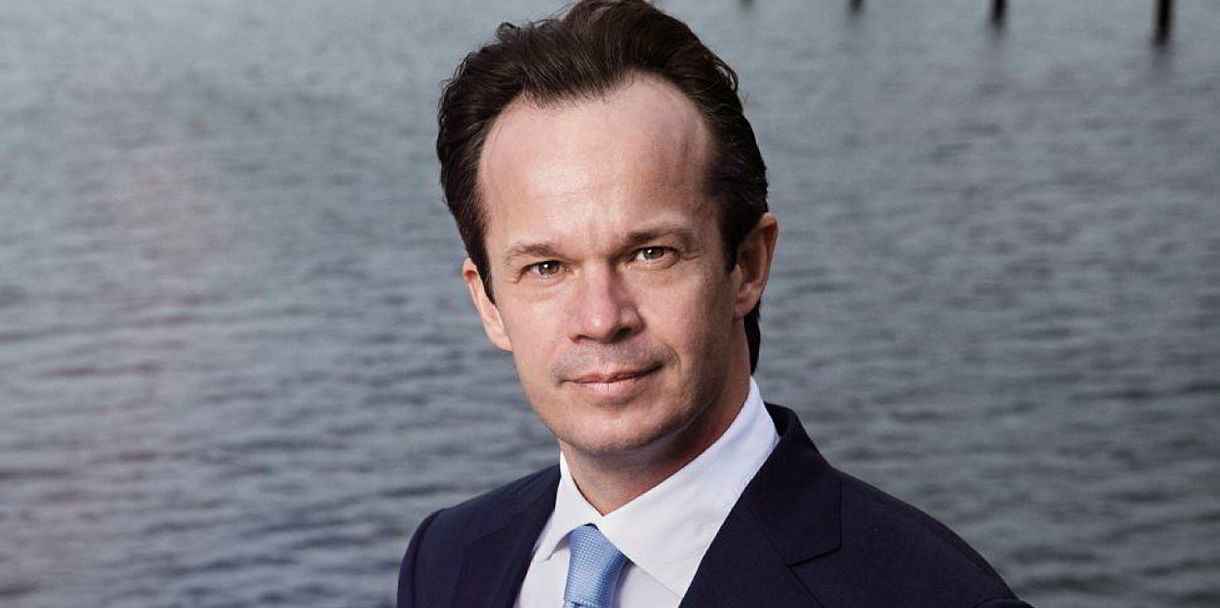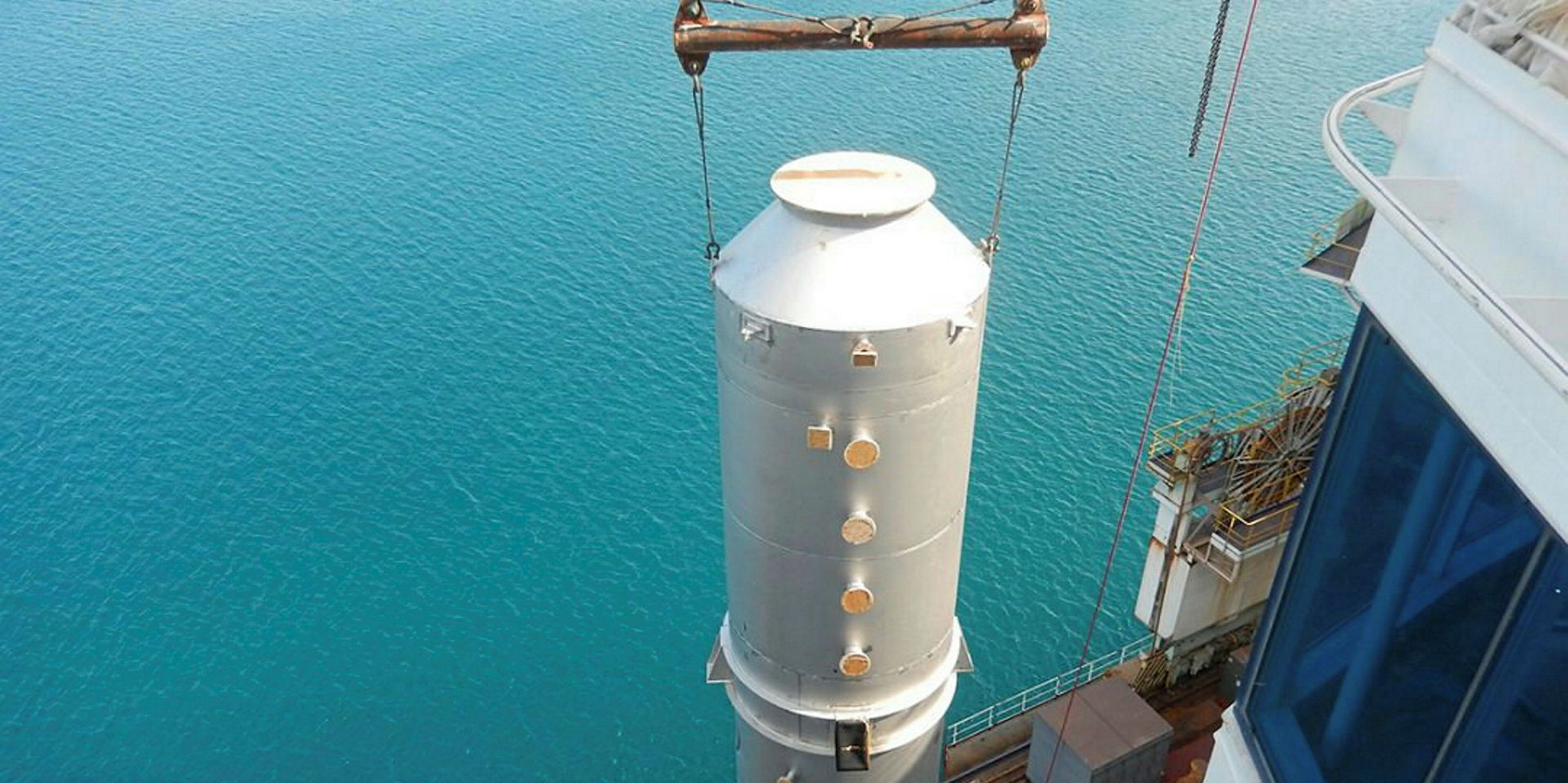The economic benefits of scrubbers have shrunk, with more countries restricting the use of open-loop types, creating market challenges for users and manufacturers on the road to IMO 2020.
The latest regulator to give the thumbs down is China’s transport ministry, which has banned the discharge of wash water from open-loop scrubbers at the country’s seaports and two main rivers.
The decision by the world’s largest seaborne trading nation follows comparable measures in Singapore, Belgium and some US states, amid growing concerns about how the wash water — containing sulphates — could affect the ecology of coastal and inland waters.
“Singapore and China’s bans on ships from operating open-loop fuel scrubbers pose a liability for shipowners installing them, as other nations are increasingly likely to follow suit,” Bloomberg Intelligence senior industry analyst Rahul Kapoor says. “If other ports fall into lockstep — a likely scenario, in our view — investments made on open-loop scrubbers would be rendered redundant, compromising future demand.”
Manufacturers are also exposed, he adds.
Vessels with scrubbers will be allowed to continue consumption of cheaper high-sulphur fuel oil from 2020, according to the IMO, which does not distinguish between different types of scrubbers.
Open-loop exhaust gas cleaning systems have been the most popular among shipowners. They are cheaper to install and are better suited to operate in open waters. Data from DNV GL shows the number of ships installed with open-loop scrubbers will reach at least 2,130 based on the current orderbook, compared with 475 with hybrid and 51 with closed-loop systems.
What this ban does ... is cut into the increasingly slim incentive to retrofit scrubbers beyond 2020
Henry Curra, Braemar ACM
Some observers point out that a widespread open-loop ban at ports could weaken but not kill scrubber economics, as vessels consume 80% to 90% of their bunkers in high seas.
Although shipowners are not expected to cancel firm scrubber orders, fresh installation deals could become more unlikely — especially as the price spread between high-sulphur and low-sulphur fuel is expected to narrow after a spike in 2020.
“The ban would add a small amount to their bunker bill, but insignificant relative to the perceived savings in high seas. It would also add to operational complexity, but hardly a deal-breaker,” Braemar ACM head of research Henry Curra says. “What this ban does, however, is cut into the increasingly slim incentive to retrofit scrubbers beyond 2020.”
Weakening the investment case
Wartsila, Ecospray, Alfa Laval and Yara Marine — the top four manufacturers by the number of orders, according to DNV GL — offer all types of scrubbers, so shipowners are not expected to face a lack of choice for meeting the IMO 2020 rules. But the open-loop ban could weaken the investment case for some ships.

Depending on vessel type and size, scrubber installation can cost $2m to $5m per ship, but open-loop units are generally the cheapest.
For example, in the VLCC segment — where the penetration of scrubber installation is higher — hybrid and closed-loop scrubbers cost between $500,000 and $800,000 more than open-loop, according to an owner experienced in installations.
Hybrid and closed-loop scrubbers take up more space onboard due to extra equipment, so more structural modifications during retrofitting might be needed. They are also expected to cost more to operate because they need to dispose of effluents.
VesselsValue analyst Court Smith says tankers would be more hurt by the ban, as their bunker consumption is high at ports due to pumping. He estimates that a VLCC could pay $30,000 per day more in fuel bills when its open-loop scrubber is switched off. This assumption is based on a fuel price spread of $300 per tonne.
Tanker owner Torm, a member of Clean Shipping Alliance 2020, a ship operators’ group that promotes scrubbers, stresses that the open-loop ban does not affect its business case for installing scrubbers. However, Torm suggests it would opt for “open-loop, hybrid-ready” systems that cost 5% more than conventional open-loop scrubbers.
“Torm’s vessels operate globally, with limited time in port, and therefore the open-loop, hybrid-ready scrubber is our preferred solution for now,” chief executive Jacob Meldgaard tells TradeWinds.

“The hybrid-ready scrubber system is prepared with software, piping and other systems for a conversion to full hybrid … Should a vessel’s trading pattern change, the owner can decide to upgrade to a full hybrid scrubber system.”
Continued debates
There are few studies on the overall environmental effects of using scrubbers. Supporters of the technology often point to the lack of evidence that they pose any harm, while their critics suggest the environmental benefits are equally doubtful.
The IMO is due to review the guidelines for scrubber use this year, which could provide more clarity on the policy front. Aside from the discharge of wash water from open-loop scrubbers at ports, some environmentalists could even put the use of open-loop systems on the high seas — or even closed-loop ones — under the spotlight.
“Discharges to the high seas have previously been considered acceptable, since the discharged material is quickly diluted. However, even the high seas can accumulate damaging pollutants over long periods,” says David Turner, professor emeritus at the University of Gothenburg’s department of marine sciences.
Seas at Risk senior policy advisor John Maggs adds: “Closed-loop [scrubbers] are of course better, but we would question the virtue of scrubbing sulphur from fuel at a ship level. It makes much more sense to do this at the refinery and for ships to burn cleaner fuels.”






